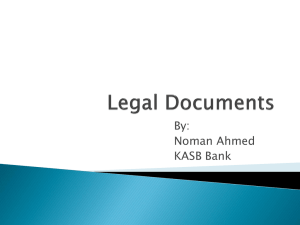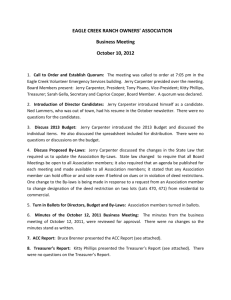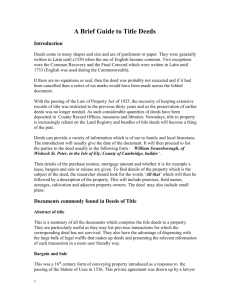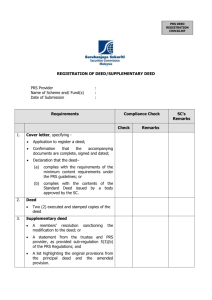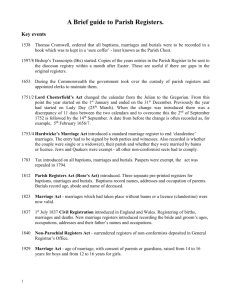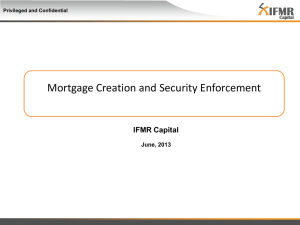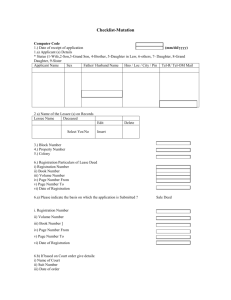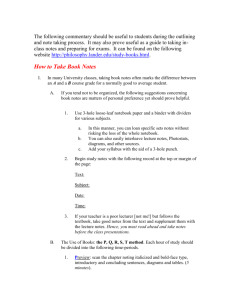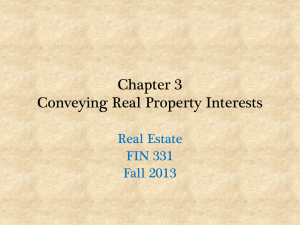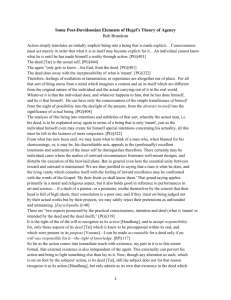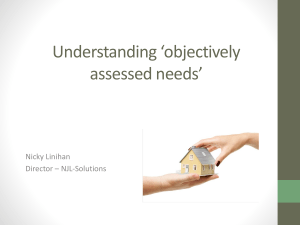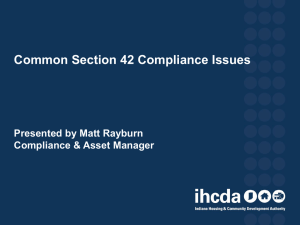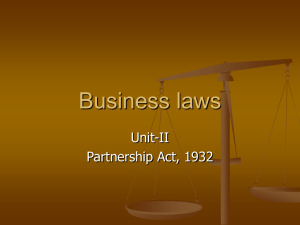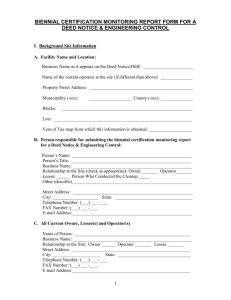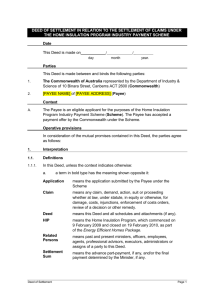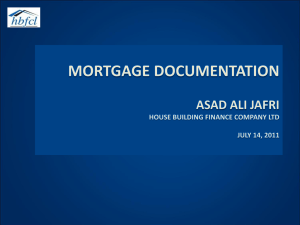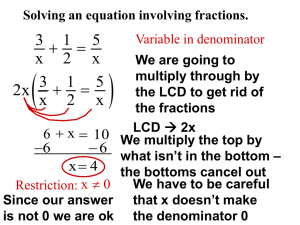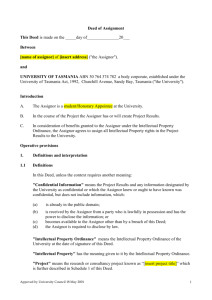Inclusionary Housing Program
advertisement
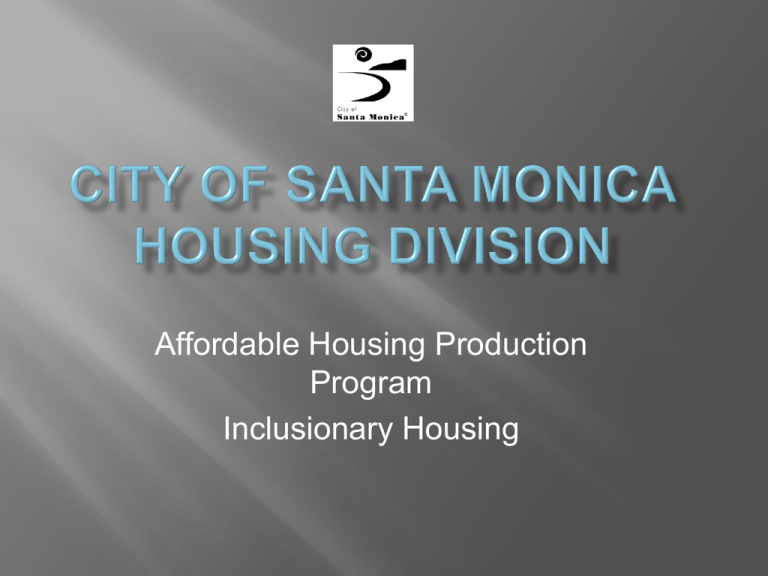
Affordable Housing Production Program Inclusionary Housing What is AHPP? What is a Deed Restriction? What are my responsibilities as the owner or property manager of a Deed Restricted property? AHPP = Affordable Housing Production Program (aka Inclusionary Housing Program) The program was created when residents of Santa Monica passed Proposition R which added Section 630 to the City Charter. The charter amendment specified that 30% of newly constructed multifamily housing be affordable to low and moderate income households. A deed restriction is an agreement that was signed by the developer of the property and recorded on title. It places restrictions on the property which generally run with the property for a 55 year period. Pre-Lease Up Responsibilities Check your deed restriction agreement to confirm the specific requirements for your property as they may vary from property to property Your deed restriction may require you to submit a Marketing Plan or a draft lease for City review and approval Your deed restriction will explain if you are required to select tenants from the City’s waiting list or self-select. If you self-select, you must conduct Income Certification of tenants Post Lease Up Responsibilities Annual Re-Certification of tenants Submitting annual report to City Some deed restriction agreements call for a Marketing Plan. A Marketing Plan is a brief explanation of how vacancies of deed restricted units will be advertised. The Marketing Plan should be submitted to the City’s Housing Division for review and approval. The lease or rental agreement being used for the affordable units needs to be submitted to the Housing Division for review and approval. If the lease or rental agreement doesn’t include language indicating that the unit is deed restricted and annual certification is required, then an Affordable Housing Addendum needs to accompany the lease or rental agreement. When a vacancy occurs, follow the guidelines of your deed restriction and either contact the City to use the waiting list or implement your Marketing Plan if you are self-selecting. You may list your vacant unit with the Housing Authority to attract a Section 8 tenant. If you take a Wait List or Section 8 tenant you do not have to certify the household’s income (the City will do this for you) If you select a Section 8 tenant you may be able to collect a higher rent than allowed by the AHPP program maximum If your deed restriction allows you to self select a tenant, be mindful of the local live/work preference requirement and remember that you will be responsible for conducting the income verification for that household Income includes the following: Employment income including bonuses & commissions Alimony Social security Disability Welfare Unemployment Benefits Pensions Financial Aid Supplementary benefits Support payments (gift from friends & family included) Income from sale of real property Income from assets over $5,000 (not including automobiles and furniture) Collect income declarations from households members over 18 years of age. Gather income verification documents to backup the income declaration. Verification for income can be in the form of pay stubs, income tax returns, bank account statements, financial statements, stock certificates etc. The income of a live-in aide is not considered if the tenant can verify the need for a live-in aide. Add the income of each household member over the age of 18 and adjust as follows: Deduct $480 for each dependent (household member under 18 years of age) Deduct $400 for any family with a head of household over the age of 62 years of age Deduct medical expenses in excess of 3% of annual income for any elderly family. For households whose total assets exceed $5,000, you must calculate the annual asset income by multiplying the value of the total assets by 10%. Add this total to the other household income to get the adjusted gross income. Assets include the following: Checking and Savings balances CD and Money Market Accounts Mutual Funds Real Estate Trust Funds 401k/IRA Stocks and Bonds Life Insurance Policies To determine the value of each asset calculate the cash value (i.e. what is the asset worth once it’s converted to cash). If the Assets amount to over $5,000 calculate the value into the household income total. The deed restrictions require annual reporting to the City which involves recertification. Every year you must certify what the household’s income is to determine whether they have exceeded the maximum allowable income by 140%. If a household exceeds the maximum allowable income by 140% you may either move them into a different unit or serve them with a one year notice to vacate. Every year you will receive a letter from the Housing Division asking you to use your assigned user name and password to log into our online system to submit your annual report. Your Deed Restriction Agreement requires you to submit an annual report to the City. In an effort to simplify and expedite the reporting process the City has created an online reporting system which allows you to use your personal username and password and log-in to submit your report electronically. You will receive a letter every year prompting you to use your log-in information to log-on to the City’s reporting website and submit your report. Every year the City will randomly select a certain percentage of its portfolio to audit. If you are selected for an audit, you will notified in writing in advance about the date and time of the audit. City staff will conduct an audit of your tenant files and/or inspection of your unit(s)
